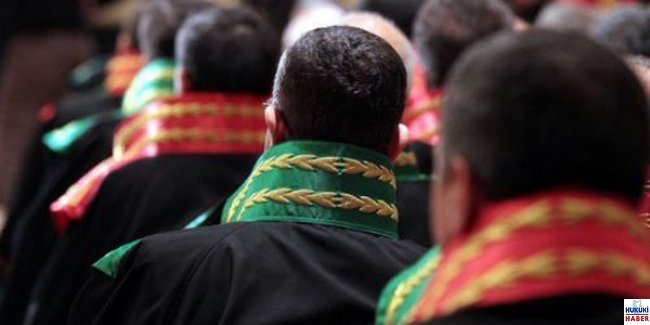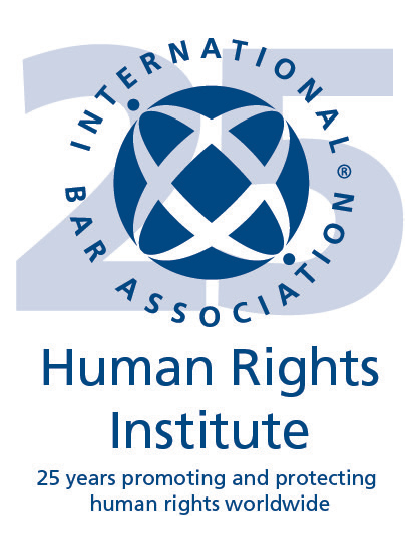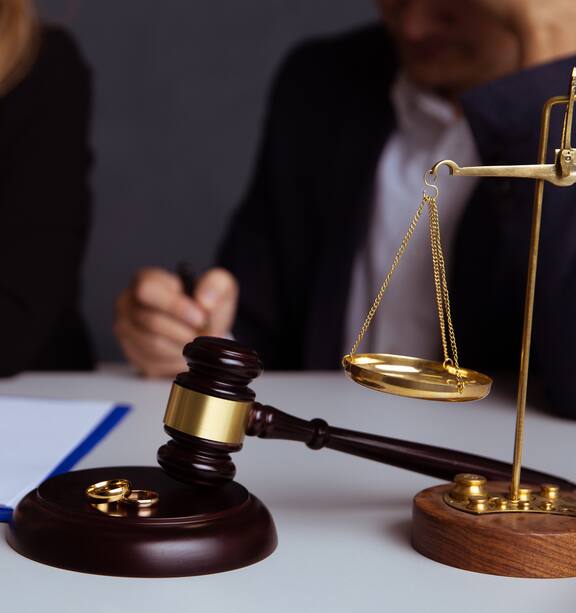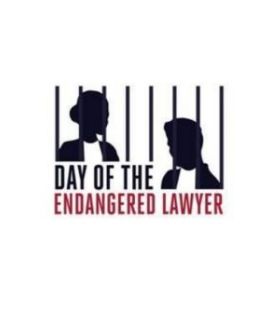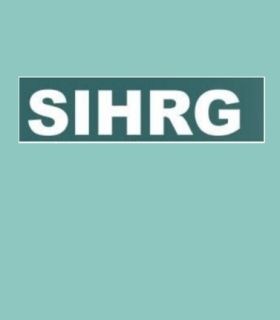- The defendants who were taken into custody during the police operation of July 11, 2018 were not allowed to see their lawyers for a long time. So much so, lawyers were told to wait for about 10-12 hours if they wanted to see their clients. As a result, many of the lawyers left without being able to see their clients.
- Even though some of the defendants had no lawyers representing them, lawyers were told “they can see only one lawyer, and they already saw one” and thus were misled. In other words, the defendants’ right to benefit from legal assistance was obstructed.
- Adnan Oktar and some of his friends’ access to their lawyers were restricted due to various made-up reasons. This restriction was extended twice without any valid reason and some documents which were used as justification for the said restriction, were not given to the lawyers until the publication of the indictment.
- Lawyer meetings, which were already restricted, were carried out in the presence of an officer, and were taped. Furthermore, the prison administrations took one copy of all the documents exchanged during the meeting.
- Tekirdağ Prison administration did not allow direct document exchange between the defendants and their lawyers for 2 months. The defendants were able to get their defense documents only via the administration of the prison.
- In an attempt to deter the lawyers, those lawyers who deposited money in the accounts of their clients in detention, were labelled as the ‘lawyers of the criminal organization’.
- Some of the lawyers of the defendants were threatened into giving intelligence about their clients. As a result, one female lawyer named Hümeyra Nur Yavuz had to file a complaint with the prosecutor’s office.
- On the pretext of the case being confidential, the statements of the defendants, expert reports and seizure minutes – in a completely unlawful way – were not given to the lawyers despite the clear 153th article of the Turkish Law of Criminal Procedures to the contrary.
- The defendants or their attorneys were not given the prosecutor’s request for detention nor the request for the continuation of the detention. However, the detention documents were leaked to the press, which was how the lawyers of the defendants found out about the situation of their clients.
- Dates of the hearings for detention reviews were not notified despite the persistent requests of the attorneys of the defendants. Therefore, the defendants had to attend the trials with Bar-appointed lawyers who did not know them or the case.
- Although all of the defendants and their attorneys were present, they were not asked of their opinions during the monthly detention reviews except for 3 times. However, the prosecution was asked of his opinion.
- During the hearing, the defendants weren’t allowed to receive legal assistance from their lawyers. They were banned from coming together, talking, exchanging documents or passing on notes. All the documents that the lawyers wished to give to their clients were delivered with permission from the judge and through a court beadle.
- Detained defendants were not able to see their lawyers at the prison due to hearings that continued late into the evening every day. Hearing minutes were not given to the defendants or their attorneys. During the trials that continued for 3 months, many interim decisions were made but minutes of none of them were uploaded to UYAP (National Judiciary Informatics System).
- Attorneys were kept under intense pressure during the trials. For 3 months the trials continued and all requests and motions of the defendant attorneys were denied without any reason and their rights to object and to voice their opinions were restricted. However, participation party’s requests were accepted without consulting the Public Prosecutor, the defendants and their attorneys. So much so, the Chief Judge did not allow the defendants’ attorneys to speak when they asked for permission and even ordered the army police to remove one attorney from the hearing room and adjourned the session until the attorney was removed.
- During the trial process, defendants’ attorneys and complainants’/participants’ attorneys were treated differently. While the participants’ attorneys were allowed to make requests, all requests of the defendants’ attorneys were denied indiscriminately.
- The defendants were asked questions about some digital examination reports, without delivering those reports to the defendant or his/her attorney beforehand on the pretext of the reports being included in the file only recently. Thus, some defendants were interrogated about documents he/she had no knowledge of and all the objections of their attorneys regarding the matter were denied.
- Because the defendants and their attorneys were not informed the dates they were going to be interrogated, some of them had to give their statements in the absence of their lawyers.
- The court did not inform of the commencement or the end date of the trial, which made it impossible for the attorneys to work on their other cases. For example, one hearing was ended abruptly after detention review was done, although it was previously stated that the next day the interrogation of those defendants on parole would start. This decision unnecessarily prevented the defendants’ attorneys who came from other cities from working on their other cases.
DIFFICULTIES THAT THE ATTORNEYS WHO WERE ARRESTED OR TAKEN INTO CUSTODY HAVE EXPERIENCED
- According to the 58th article of the Law on Lawyers no 1136, an investigation permit should be received from the Ministry of Justice if a lawyer is going to be taken into custody or arrested, unless they are caught in the act of an aggravated crime. However, no such permission was sought and lawyers were included unlawfully in the investigation.
- The allegation regarding the indicted lawyers is “aiding the criminal organization by means of providing legal aid to the members of the criminal organization” (Turkish Penal Code, article 220). Lawyers can be taken into custody by the Prosecution (without having the Ministry of Justice’s permit) only in the case of 8 terror-related crimes. The allegation about them is not one of these 8 crimes, and, therefore, the court does not have the right to try these lawyers (Code of Criminal Procedure, 223/8).
- Lawsuit petition file numbers are cited as the crime phenomenon of the charges against the indicted lawyers. This clearly shows that the crime phenomenon of the charges is attorneyship activities, and this necessitates a permit of the Ministry.
- Technical surveillance and wiretapping decisions were made about the lawyers. Furthermore, their houses and offices were searched without the presence of the Public Prosecutor or a representative from the Bar.
- Despite lack of any resistance, some attorneys were taken out of their residences handcuffed, in full view of their neighbors and remained handcuffed until the police station.
- Registered address of a detained lawyer was searched without a court order.
- Lawyers, who were taken into custody at their homes at 5.30 am in the morning, were frisked in an unlawful manner and all their belongings like their computers, hard disks, USB sticks, telephones which they were using as a part of their profession, were illegally seized.
- Even the digital sources of the guests of these lawyers, who were staying over at the time but who were not suspects in the case file, were seized.
- Furthermore, bank accounts or lawyer’s salary accounts which were clearly used for professional purposes and which can be easily accounted for with receipts, were frozen in an illegal manner.
- Lawyers were taken into custody and arrested without any justification and while they were carrying out their jobs. So much so, one lawyer who went to the house of her client after her client called her when the police came, was also taken into custody.
- They weren’t allowed to even visit the loo for hours (up to 6-10 hours) while in custody.
- They weren’t allowed to take a shower for 8 days while in custody.
- While they were taken to medical check-up with buses during the custody period, they were verbally abused and heavily insulted by some officers who were travelling with them on the bus.
- Due to unlawful detentions and arrests, their clients were put in a difficult position and the lawyers had to shut down their law offices.
- They had no access to their files and could not follow their cases but because their current residence was seen as their respective prisons, the relevant notifications about the cases they were supposed to be following, were sent to their respective prisons.
- Their respective Bars started disciplinary proceedings against them.
- Because they could not pay the salaries of the lawyers and employees working in their law offices, they were sued by their employees.
- Many defamatory, insulting news were carried about them, effectively preventing those released pending trial, from finding jobs.
- Motions filed to stop the said news that violated the principle of the presumption of innocence and attacked personal rights, were denied without any legal grounds.
- Lawyers who were detained for 17 months, were released only to go on a house arrest, which is the harshest version of supervised release and which means they cannot continue performing their jobs. In other words, the lawyers and their clients were both wronged.
- Turkish Penal Code 220/2 and 3 are public wrongs with no individual plaintiffs, therefore participating party’s attorneys do not have the right to ask questions to defendants. However, the presiding judge still allowed them to ask questions to these lawyers.
- Lawyers were asked personal questions like ‘why are you wearing revealing clothes? Why did you dance?’, etc. Also during the hearings, their photos with their friends were projected onto the big screen, where they were labelled as ‘the lawyer’ on the photo.
- Another lawyer, in a violation of the freedom of religion and conscience, which is safeguarded by the Constitution, was asked why she no longer wore a headscarf.
- Although the attorneys of the tried lawyers objected to the incidents in the last two articles and although it was reminded that ‘it was their constitutional right to dress the way they wanted, to dance and that this behavior could not be judged’, the chief judge denied these requests to stop such questions.

